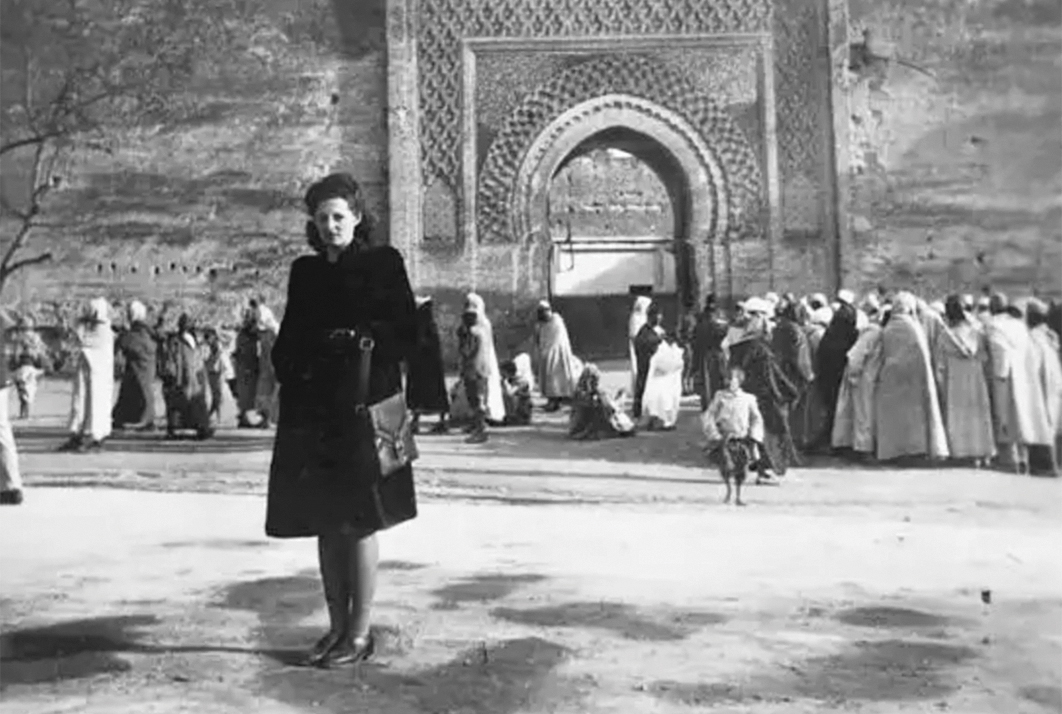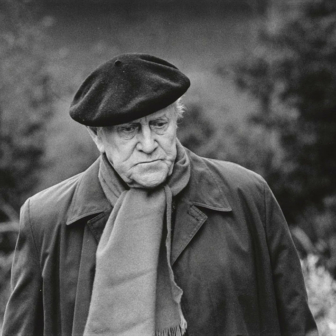The Country of Others
By Leïla Slimani | Translated by Sam Taylor | Faber and Faber | 315 pages
Australians are great travellers, yet our sojourns in foreign countries can be tainted by our generally superficial knowledge of them. And it’s almost axiomatic that we know little about a place until war breaks out, especially if we find ourselves caught up in it — Afghanistan being one prime example.
As for me, I haven’t been much of a traveller since lobbing into Australia at the age of nineteen. So I’ve never been to the country at the centre of Leïla Slimani’s latest novel, though I did paint a picture once that, pressed to give it a name, I called “Morocco.” For me the country conjured up everything exotic and romantic in our world, with the movie Casablanca playing no small part.
Imagine, then, what it was like for Slimani’s central character. The Nazis were pushing across Europe, France fell, and at the age of nineteen, Mathilde, a village girl from Alsace, was swept off her feet by a handsome Moroccan corporal in France’s colonial army. And, in a rush of passion, they married before the Germans captured and imprisoned him. Reunited after the war, the couple went to live in his native country. Amine was twenty-eight, his bride just twenty. Now home in Morocco, he grew disenchanted, realising that “what had charmed him while they were still in Europe” was cause for much annoyance. Unlike his mother, Mathilde was frivolous and fiery — given to tears at the slightest provocation. In short, what began for Mathilde as a wildly romantic adventure had turned into what her dour older sister Irène might well have predicted.
Thus the story in The Country of Others is essentially that of a war bride, an all too common tale. For all that, there’s nothing stale or clichéd here. Mathilde and Amine are far from stock characters and, despite their differences and exasperations, Slimani makes us believe that at bottom they’ve never stop loving each other. The author brings unflinching honesty and vitality to her story. All the people we meet are complex, their lives churned on the accelerating waves of Moroccan nationalism in what was then a French colony.
If you wanted to pigeonhole the novel, you could say it’s a book about miscegenation — these days an old-fashioned and creepy word, but incendiary at the time. And there’s more to it than might first meet the reader’s eye. For this is a remarkable book by a writer who is the product of mixed parentage herself and, at the age of thirty-nine, has secured a special place for herself in French arts and letters.
Slimani won the Prix Goncourt in 2016 for her novel Lullaby (Chanson douce in French) based on the case of a Manhattan nanny convicted of killing her charges. Her first novel Adèle (Dans le jardin de l’ogre), inspired by the rape charges against Dominique Strauss-Kahn that scotched his ambition for the French presidency, is about a woman whose sex addiction plays havoc with her life. For this novel she has drawn on her own French-Moroccan family, with The Country of Others (Le pays des autres), the first volume of a trilogy, centred on the life of her maternal grandmother, Anne Dhob, the woman we come to know as Mathilde. The second volume will deal with her mother, whom we meet as the girl Aïcha in this one, while the third will be autobiographical.
Before devoting herself to fiction, Slimani worked as an actor and a journalist. She has, in addition, published two books of non-fiction — Sex and Lies (Sexe et mensonges: La vie sexuelle au Maroc) was compiled from interviews with Moroccan women; another, La baie de Dakhla, examines the transition to modernity in Morocco’s Dakhla region — and a graphic novel, Paroles d’honneur, which appeared in 2017. To cap it all, president Emmanuel Macron offered her the ministry of culture, which she refused, believing — quite plausibly — that it would take her away from her writing. Macron has instead appointed her his personal representative to the Organisation Internationale de la Francophonie.
Coming as it does with glowing recommendations from Claire Messud and Salman Rushdie, The Country of Others lives up to expectations. We have the incongruous match between the tall, fair, green-eyed, lustful Alsatian woman and her dark Moroccan lover, a full head shorter. We follow Amine’s struggle to wrest a living and establish a modern farm from the patch of stony land bequeathed to him by his long-dead father. We have Mathilde’s difficult adjustments as a foreigner, ignorant of her husband’s language and culture, a puzzle to his family, and a pariah in the eyes of the French community. Seven months pregnant with Aïcha and happening on the French quarter in nearby Meknes, she is subjected to the casual humiliation characteristically deployed by bigoted colonials.
“Just then, two young women pushed past her,” Slimani writes. “The dark-haired one started laughing: ‘Look at her. She’s pregnant by an Arab!’ Mathilde turned around and grabbed the woman’s sleeve, but she yanked it free. If it hadn’t been for her big belly and the oppressive heat, Mathilde would have gone after her. She would have stuffed those words back down her throat.”
In letters to her sister Mathilde glosses over her outcast state, along with everything else she is enduring. Too proud to own up to her misery, not to mention the shame, she ramps up the country’s exoticism instead. In any case, Slimani writes, “She would have needed new words, a whole vocabulary, freed of the past” to express the deep ambivalence of her feelings.
Despite such unpromising beginnings, Mathilde finds her place in Morocco. But her story forms only a thread of a larger story, peopled with a cast of humanely drawn characters. All along the novel’s accumulating plot they are rushed towards Morocco’s independence in 1956. Slimani handles this with consummate skill, carrying the reader into the struggle with neither didacticism nor strain. In a powerful but nuanced way The Country of Others, as the title subtly suggests, is a plea for humanity, whatever colour it comes in, and heralds a future when rigid and outdated twentieth-century notions about race and ethnicity are finally dismantled, though Slimani is clear-eyed about the concomitant pain.
One last word, about the prose. This Faber edition of The Country of Others is of course a work in translation. Still, reading it in English has its own rewards, and for that, much credit is due to Sam Taylor. Taylor, a novelist himself, also translated Slimani’s Adèle and Lullaby. •




